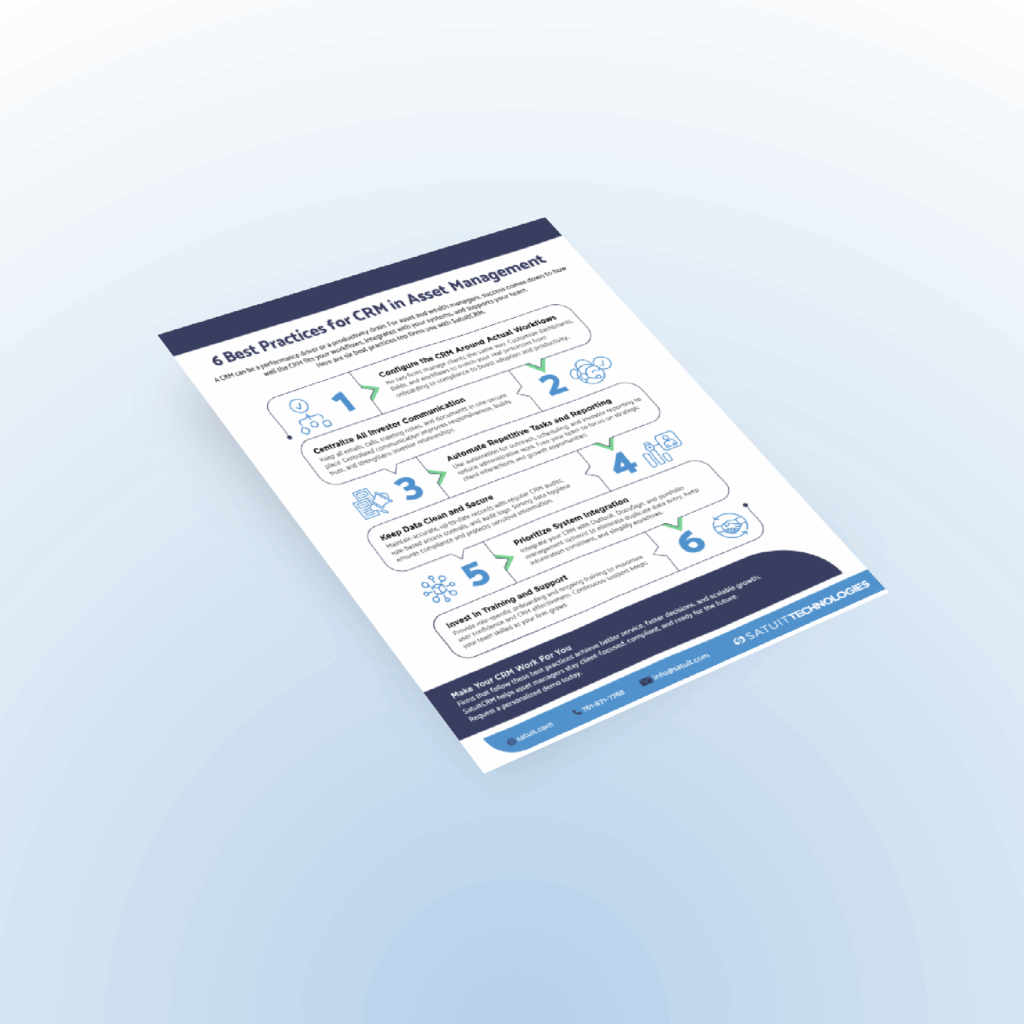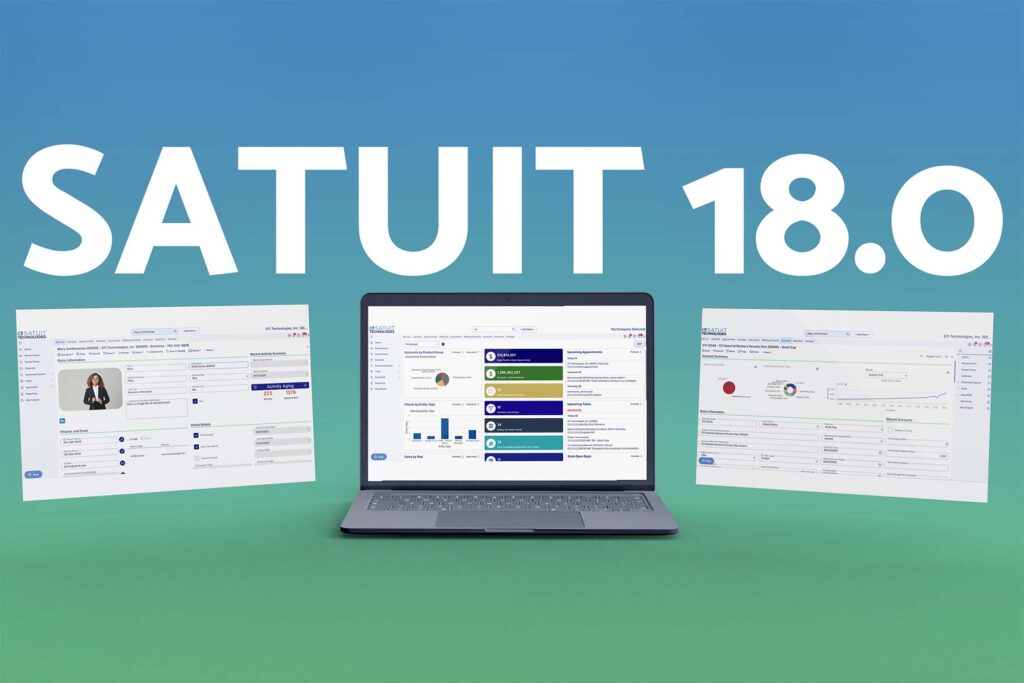Implementing effective data governance strategies is crucial for buy-side investors and asset managers to engage in informed decision-making.
However, studies show that a staggering 60-73% of data in companies goes unused for strategic purposes. For investment firms relying on Customer Relationship Management (CRM) systems, mastering data governance is not just a best practice—it’s essential. This blog explores key strategies for implementing effective data governance in investment firms.
What is Data Governance?
Data governance refers to managing the availability, usability, security, and integrity of data in enterprise systems. This process is governed by internal standards and policies that control the usage, access, and quality of data within an organization. Effective data governance ensures the consistency of data, its integrity, and usability.
- Availability: Ensuring data is accessible when needed.
- Usability: Data should be easily interpretable and usable by stakeholders.
- Security: Protects data from unauthorized access and potential breaches.
- Integrity: Maintaining data’s accuracy and consistency over its lifecycle.
Why It’s Crucial for Investment & Asset Management Firms
Data governance is vital in industries with dynamic regulatory landscapes and evolving data privacy regulations. It is indispensable for investment firms reliant on data analytics to optimize operations and drive informed decision-making.
Poor Data Governance Leads to Significant Risks
Attempting to fix poor data governance can consume 20-40% of IT budgets (Dr. Peter Aiken, president of DAMA International). Financial impact aside, failure to implement effective data governance can expose firms to several risks, including:
- Inaccurate Data or Data Inconsistencies: Leads to flawed decision-making.
- Complicated Data Integration: Creates challenges in merging data from different sources.
- Data Breaches: Increases vulnerability to cyber-attacks.
- Non-Compliance with Regulations: Firms risk hefty fines and reputational damage.
- Increased Data Silos: Limits to data sharing and collaboration.
Implementing Data Governance at Your Firm
Deploying a well-structured data governance framework tailored to your firm’s specific needs is critical for leveraging data assets effectively. Here are some benefits of implementing data governance in investment firms:
- Improved Data Quality: Ensures cleaner, more accurate data.
- Lowered Data Management Costs: Reduces costs associated with poor data quality.
- Greater Data Accessibility: Enhances data accessibility for decision-making.
- Better Business Decision-Making: Enables more informed, data-driven decisions.
- Competitive Advantage: Provides firms a strategic edge, leading to higher profit margins.
The Key Goals of Data Governance
- Break Down Data Silos: Facilitate better data integration and sharing.
- Harmonize Data Across Business Systems: Ensure uniformity in data across platforms.
- Avoid Potential Misuse of Data: Prevent unauthorized or inappropriate use of data.
- Achieve Compliance: Firms can balance data collection practices with privacy mandates and regulations, to comply with legal requirements.
SatuitCRM Enhances Data Governance for Investment Firms
SatuitCRM is designed to elevate data governance by offering comprehensive features that address the specific needs of investment firms. These capabilities ensure data integrity, facilitate compliance and support better business outcomes.
Jamie Plassmann, General Manager of Satuit, states, “SatuitCRM is purpose-built for buys-side investment and asset management sectors. We know how imperative it is to tackle common data governance challenges through our robust solutions. Such solutions enable investment firms to maintain high-quality data and drive better business outcomes.”
SatuitCRM provides powerful tools to support effective data governance at your firm, empowering users to maintain data integrity and manage records through proactive engagement. Users can set up triggers and dashboards that alert to key data governance components, including:
Maintaining Data Integrity & Ensuring Clean Data for Accurate Reporting
- Prevent unauthorized access by ensuring ex-clients no longer have access to sensitive information.
- Update and correct client contact details, such as resolving bouncing emails and addressing unpaid invoices.
- Resolve inconsistencies in opportunity data (e.g., correcting mismatched statuses where Closed = Yes but Status = Pending).
- Populate missing financial metrics like AUM/Expected Revenue.
- Ensure all accounts have designated contacts for critical communications, such as Legal Notices.
Identifying and Managing Stale Records
- Track open opportunities that lack recent activities to prevent them from becoming stagnant.
- Monitor clients for consistent engagement and identify those without recent interactions for timely follow-up.
- Regularly update contact information, focusing on individuals without touchpoints for extended periods.
Satuit: Closing the Gap Between CRM Data & Better Decision-Making
Mastering data governance is crucial for investment firms seeking to leverage their data assets for strategic advantage. By ensuring data quality, security, and access, firms can enhance decision-making processes and gain a competitive edge in the market. SatuitCRM plays a pivotal role in this venture, offering tailored CRM solutions that address the unique challenges of data governance within the investment sector.
Get in touch with Satuit’s team today for a demo of SatuitCRM and its data governance capabilities.






